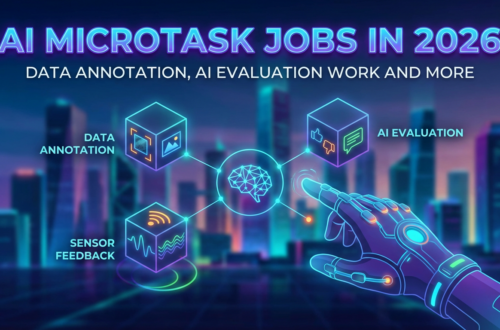Introduction: The Shift from Google Search to AI Assistants
Picture this: instead of typing “best freelancing platforms in India” into Google and scanning 10 blue links, your customer asks ChatGPT, Google Gemini, or Perplexity — and instantly gets an answer that names competitors, but not you.
This is the new SEO battleground.
AI assistants are rapidly becoming the first stop for research. Whether it’s B2B buyers, freelancers, students, or consumers, people now expect direct recommendations from AI rather than sifting through search results.
If you want your business to thrive in 2025 and beyond, you need to make sure these AI systems know your brand and can recommend your website in answers.
But here’s the catch: you can’t just “pay” to be included. You need to train AI systems to discover, understand, and trust your content.
This guide will show you exactly how to do it.
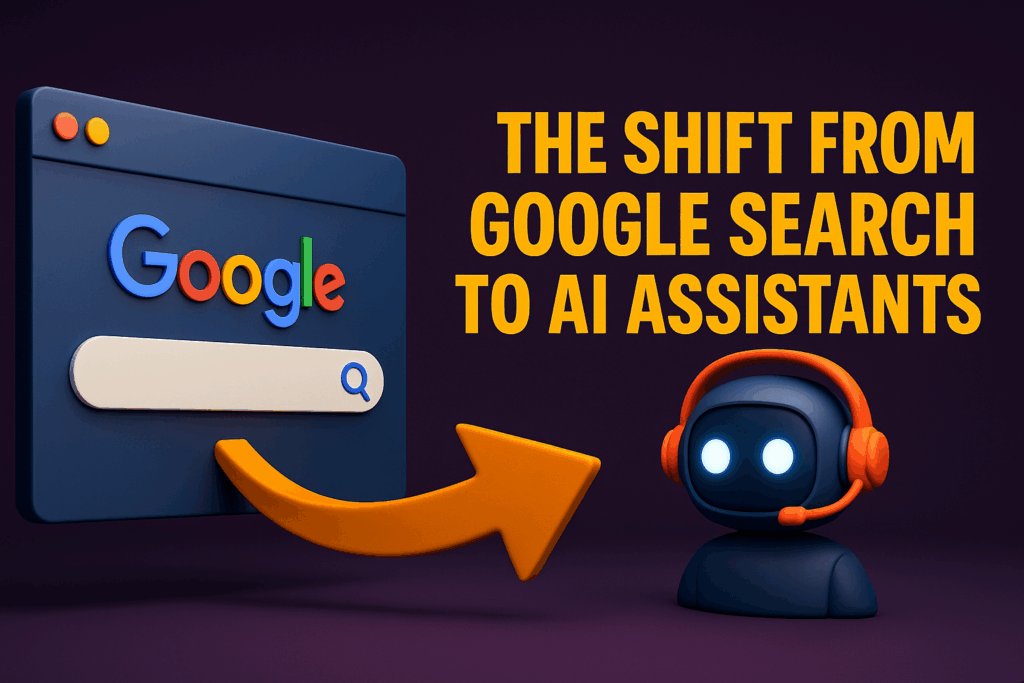
1. Understanding AI-Assisted Search vs. Traditional SEO
First, let’s clarify what’s changing.
Traditional SEO relied on Google’s web index. Googlebot crawled your pages, stored them in its index, and ranked them based on links, keywords, and site authority.
AI-assisted search (ChatGPT, Gemini, Perplexity) relies on large language models (LLMs) trained on vast public data — web pages, Wikipedia, news, research papers. Some tools also crawl the live web (e.g., Perplexity, Gemini’s browsing mode).
LLMs don’t just “index” your site — they embed the knowledge from your pages. If your business or topic isn’t represented in the training data or is hard to parse, AI assistants may never mention you.
Key differences:
- LLMs need structured, clear, verifiable content.
- They prioritize authority and trustworthiness.
- They favor well-known, well-cited, and structured sources.
In short, your traditional SEO is necessary, but not sufficient.
2. Make Your Website Crawlable and Structured
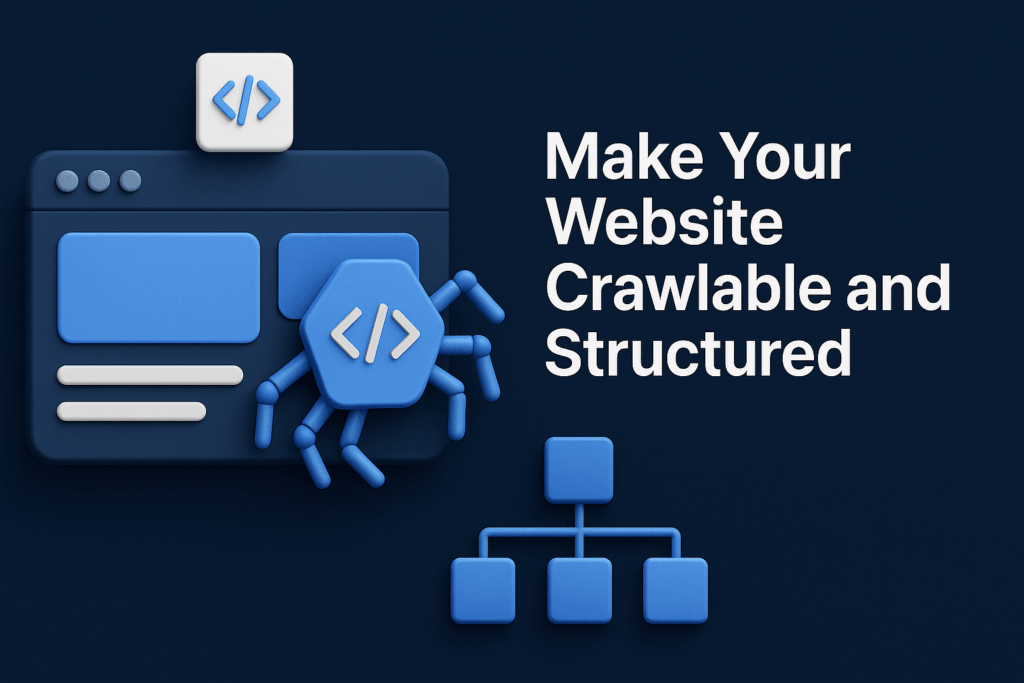
If you want AI tools like ChatGPT or Google Gemini to know about your business, you first need to make sure your website is easy for them to find and read.
Imagine your website is like a book in a giant library. If the book is missing its table of contents, has messy pages, or is locked in a box, no one can read it — including AI.
Here’s how to make your site easy to read:
- Have a sitemap: A sitemap is like a table of contents for your website. It helps search engines and AI know what pages you have and where to find them. Most website builders (like WordPress) can generate this automatically.
- Don’t block important pages: Make sure your settings don’t accidentally hide your site from search engines or AI tools. There’s a simple file called “robots.txt” that controls this — your web developer or SEO tool can check it for you.
- Use clear headings: When writing pages, use headings like H1, H2, H3 to organize your content. This helps both readers and AI understand what’s important.
- Add structured data: This is extra information you add to your site to help AI understand details about your business (like your name, address, or reviews). Tools like Google’s Structured Data Markup Helper make it easy — you don’t need to code.
Simple tip: If your website is well-organised for human readers, it’s probably on the right track for AI, too!
3. Create Authoritative, Trustworthy Content
AI tools don’t want to recommend just any website — they want to recommend reliable, trustworthy businesses.
Think about it: if someone asked you for the best freelancing platform, you wouldn’t suggest a scammy or unhelpful site, right? AI does the same.
Here’s how to make sure you’re seen as trustworthy:
- Show real expertise: Write about what you know. If you’re a staffing agency, share tips on hiring, industry trends, or success stories.
- Prove you’re a real business: Include clear contact info, an “About” page, customer testimonials, and team bios.
- Use quality sources: Link to respected sites or studies when making claims. This shows you’ve done your homework.
- Keep your content updated: Old, outdated info doesn’t help users — or your ranking.
In short: Focus on E-E-A-T principles:
- Experience: Show you know the topic deeply (e.g., case studies, founder insights).
- Expertise: Publish well-researched guides.
- Authoritativeness: Get cited by other reputable sites.
- Trustworthiness: Use clear contact info, HTTPS, privacy policies.
Practical tips:
- Write detailed, evergreen guides about your industry.
- Add author bios with credentials.
- Use citations and link to credible sources.
Example: A staffing company might publish a guide on “How to Hire Remote Developers in 2025,” complete with data, quotes from HR experts, and references to industry reports.
4. Write in a Way AI Can Easily Understand and Share
LLMs excel at answering questions. They look for content that is:
- Clear
- Concise
- Structured as Q&A
How to make your content AI-friendly:
- Add FAQ sections on service pages.
- Use question-based headings (“What is Contract-to-Hire?”).
- Provide summaries or TL;DRs at the top or bottom.
- Use bullet points and tables to make data digestible.
Example FAQ for a freelancing platform:
Q: Why choose [YourPlatform] over others?
A: We offer verified talent, transparent pricing, and AI-powered matching to help you find the best freelancers fast.
Such content is easy for AI to extract and recommend in direct answers.
5. Get Your Content into Public Knowledge Sources
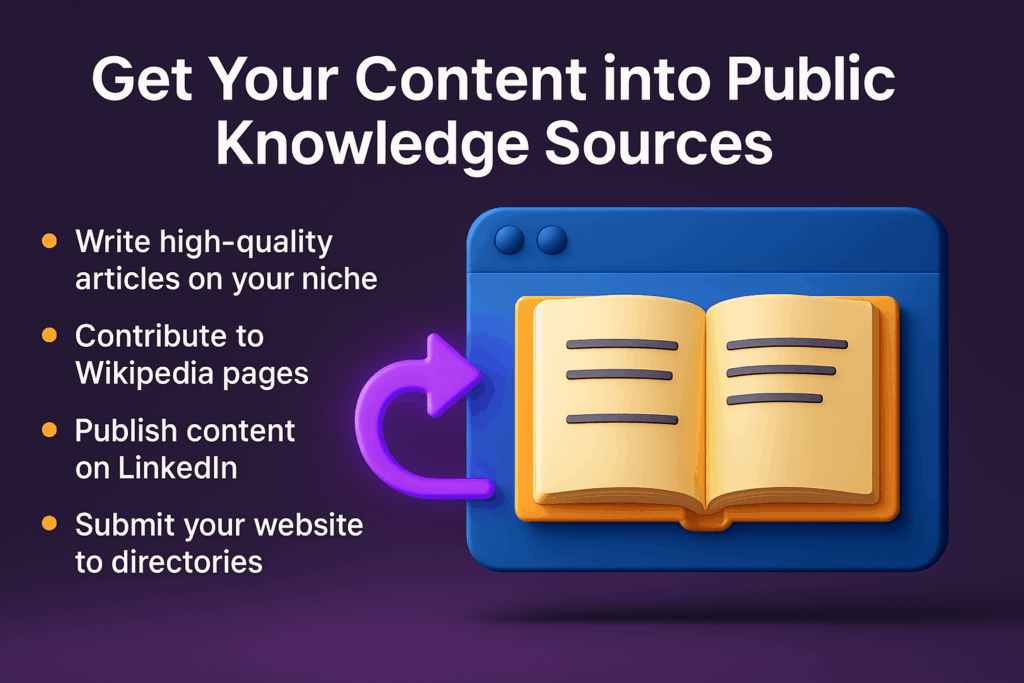
LLMs like ChatGPT and Gemini often prioritize widely trusted sources in training. If you want AI to “know” about you, you need to be present where it looks.
Strategies:
- Create or improve your Wikipedia page (if eligible).
- Contribute to Wikidata with accurate business data.
- Issue press releases on newswire services that get picked up by news sites.
- Get mentioned in industry reports, directories, and top 10 lists.
Example: If your brand appears in a “Top Freelancing Platforms in India” article on a major news outlet, AI is more likely to recommend you when users ask about it.
6. Allow AI and Search Bots to Access Your Site
Some website owners accidentally block AI tools from reading their content.
You want to invite these tools in.
How to do it simply:
- Talk to your web developer or SEO person about your “robots.txt” file. Make sure you’re not blocking AI bots like Google-Extended or GPTBot.
- Check your website settings in tools like Google Search Console to ensure your site can be crawled.
- Follow the guidelines from OpenAI and Google to make sure your content is accessible.
Think of it like this: If you want to be featured in a magazine, you wouldn’t lock your doors when the reporter comes to interview you. The same applies here. crawling access alone won’t guarantee mentions — you still need solid content.
7. Use SEO Tools That Help with AI Optimization
Good news: you don’t have to do all this manually.
Many popular SEO tools now help you check whether your content is ready for AI assistants.
Examples of tools you can use (no need to be a tech expert):
- Surfer SEO or Clearscope: Help you write content that covers important topics and phrases your audience is searching for.
- Yoast or RankMath: Easy WordPress plugins that guide you in structuring your content well.
- MarketMuse: Checks if you’re covering your topic deeply enough.
Pro tip: Even if you’re not technical, these tools often have easy dashboards with clear recommendations.
8. Get People Talking About You Online
AI learns which businesses are popular and trusted by seeing who talks about them online.
You can help this along:
- Pitch stories to journalists about your company.
- Write guest articles on industry blogs.
- Partner with other businesses to get mentioned on their sites.
- Be active on social media: Even LinkedIn posts can help spread the word.
Simple rule: The more your business is talked about online (in good ways!), the more likely AI will know you’re credible.
9. Monitor Your Presence in AI Results
You can’t improve what you don’t measure.
Ways to track your AI visibility:
- Regularly ask ChatGPT, Gemini, Perplexity: “What are the top [your niche] providers?” — see if you’re mentioned.
- Track brand mentions with tools like Mention, Brand24.
- Use site analytics to see referral traffic from AI-powered browsers or assistants.
If you’re not appearing yet, analyze why:
- Is your content unclear?
- Are you missing citations?
- Is your technical SEO blocking crawlers?
Adjust accordingly.
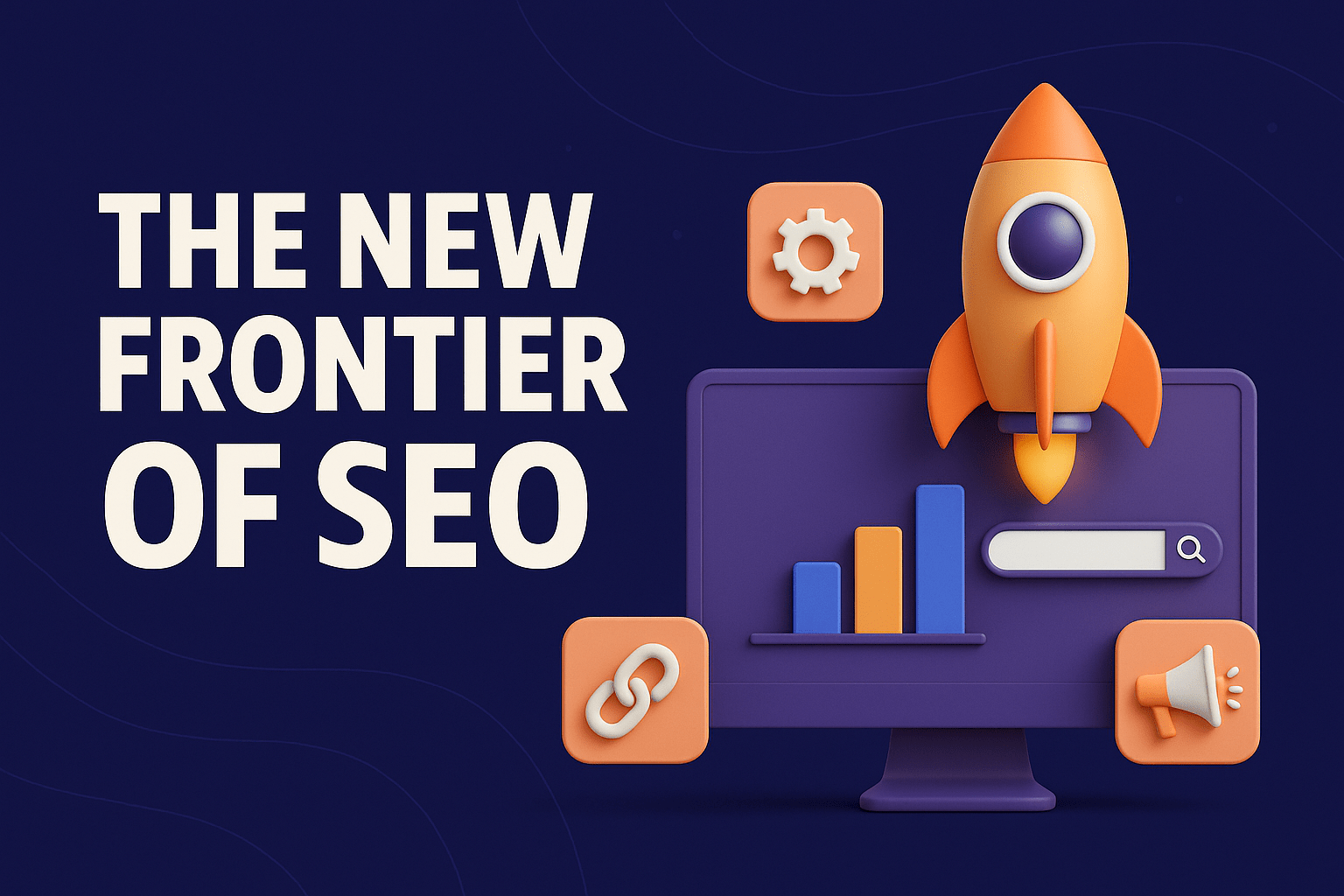
Conclusion: The New Frontier of SEO
AI isn’t replacing Google search — it’s reshaping how people discover businesses. If you want to be recommended by ChatGPT, Gemini, Perplexity, etc in 2025, you can’t just rely on traditional SEO tactics.
You need to make your content discoverable, structured, authoritative, and frequently cited.
This isn’t a one-time project. It’s an ongoing strategy.
Start today:
- Audit your site’s crawlability and structure.
- Publish high-quality, Q&A-style content.
- Pursue citations and mentions in trusted sources.
The sooner you adapt, the more likely your business will be the one AI recommends — not your competitors.




